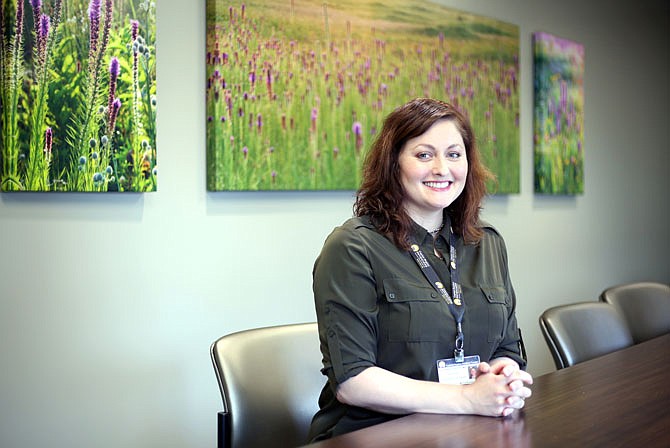Last year, Alzheimer's was coined the most expensive disease in the United States, affecting 15 million Americans nationwide. But physicians say living with Alzheimer's and treating the disease is more than just a medical cost - it's a family ordeal.
Dr. Ruthanna Hunter, neurologist at Capital Region Medical Center (CRMC), said people can experience a variety of emotions when diagnosed with Alzheimer's disease or other types of dementia.
"It's a devastating diagnosis for patients," Hunter said. "Typically, patients can feel angry, sad or depressed, and sometimes they feel a sense of relief."
She explained a patient's response may be attributed to how they interpret what is happening. Some people can't recognize the symptoms because of the disease, while others don't want to burden their families.
As the disease progresses, both patients and their caregivers can feel a sense of isolation, so Hunter recommends both parties get involved with support groups to help provide them with a sense of community.
"As a doctor, not only do I wind up treating the patient, but I also talk to caregivers, asking them about how they're doing," Hunter said. "In most cases, there is this added burden to caregivers, where in addition to stress they may experience other ailments. So there is not just cost in term of medical treatment and medications but also in terms of patients needing additional care."
Caregivers can be spouses, family, friends, or even paid contractors who come into the home and offer services to Alzheimer's or dementia patients. Support groups for patients and caregivers are available through organizations like CRMC, the Alzheimer's Association and the University of Missouri Health System.
Jesse Kwatamdia, executive director for the Alzheimer's Association's Greater Missouri Chapter, said the cost of care for the disease is projected to cost Americans a total of $259 billion this year, up from $236 billion in 2016, varying in Medicaid, Medicare and out-of-pocket expenses.
In the past, she explained, the state has allocated $450,000 for respite care among the three regional associations - Mid-Missouri, St. Louis and Kansas City - leaving the association with $500 per family. In Missouri, 16,000 people were reported to have suffered from Alzheimer's disease in 2016, according to Alzheimer's Association data.
Currently, respite care funds are in danger of being cut under Gov. Eric Greitens' proposed budget, lowering the organization's total allocation to $275,000.
"If you look at the cost of care, $500 is nothing," Kwatamdia said.
Respite funds help keep patients in their homes longer by providing funds for in-home care services; allowing them to purchase additional medical services; and giving them access to adult day centers, which give primary caregivers a break.
Joel Shenker, behavioral neurologist at the University of Missouri, believes supporting patients with Alzheimer's disease is not a medical problem, but a social one.
"We have to have a paradigm shift on the way we think about this," Shenker said. "There are a lot of people who don't know they're having a problem functioning, and we're waiting on the patient to complain."
Shenker said families have to take initiative and implement strategies that will help the patient maintain a "normal" life without allowing them the power to make those decisions, especially in cases that require memory of important life events.
He suggests setting up automatically paid bills or developing a schedule that allows a caregiver to be available for medication dispensing, shopping and running errands that require driving.
Hunter emphasized the importance of entire families sitting down to talk about the diagnosis so everyone can be on the same page.
With caregivers taking on the responsibility of looking after their family members, physicians and advocates recognize caregivers need a break.
"When a crisis happens after midnight, we want people to call our help line," Kwatamdia said. "It is open 24/7, it's in the privacy of your own home, and you can count on having somebody to talk to."
The Alzheimer's Association help line is accessible at 1-800-272-3900.

